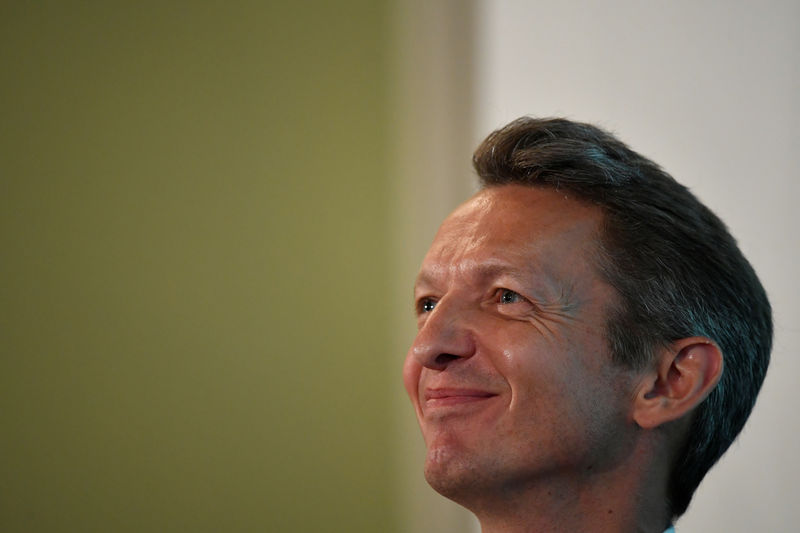By David Milliken
SCUNTHORPE, England (Reuters) - Bank of England chief economist Andy Haldane sought to push back against market bets that the central bank's next move will be an interest rate cut, saying he would resist lowering borrowing costs unless there was a sharp downturn.
Haldane contrasted the BoE's stance with that of the U.S. Federal Reserve and the European Central Bank - both of which are expected to loosen policy - and stressed again that even a disruptive no-deal Brexit would not bring an automatic rate cut.
He acknowledged that business investment was "strikingly subdued" as companies struggled with Brexit uncertainty.
"My personal view though is that I would be very cautious about considering a monetary policy loosening, barring some sharp economic downturn," he said at an event for local businesses in Scunthorpe, northern England.
BoE Governor Mark Carney and others have also deflected the idea that the Monetary Policy Committee is thinking of cutting rates while a Brexit deal remains possible.
They say the pricing of rate futures has been distorted by the risk of Britain leaving the EU without a transition deal on Oct. 31, creating a tension between their forecasts and market assumptions.
"Monetary policymakers are often cast as one-club golfers. In the current conjuncture, the problem is more that the MPC does not know which of two quite different fairways it should be aiming at," Haldane said in his speech.
"With the economic road ahead potentially forking, the case for holding rates until the road becomes clearer is strong."
Britain's economy appears to have slowed sharply during the three months to June, reflecting a lull after businesses rushed to prepare for Britain's original EU exit date of March 29.
Some economists think the country risks slipping into recession especially if there is a no-deal Brexit.
But Haldane highlighted robust consumer spending and the strong labor market and said Britain's economy was running at full capacity.
Even after a no-deal Brexit - something incoming prime minister Boris Johnson has said is prepared to do if the EU refuses to renegotiate the withdrawal deal - the case for a rate cut would not be clear-cut, Haldane said.
Carney and other BoE policymakers have said the BoE is more likely to cut rates than raise them after a no-deal Brexit.
Carney sounded less positive about the economy than Haldane when he said this month that underlying growth was running below its potential and relying heavily on household spending.
"PRISONER OF PAST"
Haldane used his speech to warn that markets and the public had grown too accustomed to ultra-low interest rates, a marked contrast in tone from 2016, when he defended "sledgehammer" stimulus after Britain voted to leave the EU.
"It is important that monetary policy is not a prisoner of its past, that the monetary cavalry are not called at the first whiff of grapeshot, that a dependency culture around monetary policy is not allowed to develop," Haldane said.
"Super-charging the supply side of the economy is what is now needed," he added.
On Monday Britain's National Institute of Economic and Social Research said a no-deal Brexit would hit the economy's supply capacity and lower economic output by 5% relative to a softer Brexit.
Haldane said there was no better time to sort out deep-seated structural issues around education, training and transport links.

Johnson has said he wants to cut income taxes for higher earners as well as raise payroll tax thresholds, which would represent a major loosening of Britain's fiscal policy.